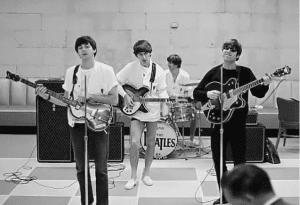The Tragedy Behind Janis Joplin’s Last TV Moment

via @ShoutFactoryVEVO / YouTube
In the summer of 1970, Janis Joplin made what would become her last television appearance on The Dick Cavett Show. It was a moment that captured both her enduring spirit and the quiet struggles she carried behind the scenes. Though audiences at the time had no idea, this interview would serve as one of Joplin’s final glimpses into the public eye before her tragic death later that year.
Joplin had become a frequent guest on Cavett’s show, appearing three times between 1968 and 1970—each visit with a different backing band. In her last appearance, she was backed by the Full Tilt Boogie Band, a symbol of the constant changes in her career and life. As casual as the interview seemed, underneath the surface were signs of a young woman grappling with fame, exhaustion, and personal demons.
While her voice remained as powerful as ever, her comments during the show hinted at a growing disillusionment with the demands of stardom. Joplin was never one to sugarcoat her feelings, and in this interview, her honesty was striking. The light-hearted banter between her and Cavett couldn’t fully mask the weariness that was beginning to show.
View this post on Instagram
Honest Moments on Air
Janis Joplin’s chemistry with Dick Cavett was something special; unlike many stiff talk show moments, theirs felt almost like a conversation between friends. Cavett himself would later say he was “lucky” that Joplin enjoyed coming on his show, noting that her appearances helped encourage other rock stars to do the same. There was a warmth between them that made her interviews feel unusually candid and comfortable.
During that final interview, Cavett’s ease with Joplin was evident. He introduced her warmly, calling her “my little songbird,” immediately setting a playful, affectionate tone. Despite her nerves, Joplin responded openly to his questions, even when discussing difficult topics like her frustrations with interviews and feeling misunderstood by the media.
Joplin admitted that while she didn’t mind interviews in general, what she disliked was speaking with people who misrepresented her. It wasn’t just a celebrity complaint—it touched a deep, personal wound stemming from years of being bullied and judged as a teenager in Port Arthur. Her sensitivity to criticism never truly faded, and the echoes of that pain sometimes surfaced in her public appearances.
View this post on Instagram
Fame, Frustrations, and the Shifting Music Scene
Another topic Cavett raised that evening was the transformation of the music world, especially after a series of violent incidents at major concerts. While others might have sounded jaded, Joplin remained optimistic, believing that music festivals still held a powerful and positive meaning for the youth of her time. Her hopeful tone suggested she still saw music as a force for unity and joy, even if the realities were becoming more complicated.
Still, Joplin acknowledged that organizing these large-scale events wasn’t easy. She spoke about the heavy logistics involved, hinting that the business side of the music industry was starting to weigh on her creative spirit. The carefree days of small clubs and spontaneous jam sessions were being replaced by the grueling machinery of big business.
Sadly, her plans and hopes were cut short. Only a couple of months after that final interview, Joplin passed away at just 27 years old. She would never get to see the continued evolution of the music festivals she loved, nor fully enjoy the success of her album Pearl, which would soar to great heights posthumously.
View this post on Instagram
The Pain Beneath the Power
Behind Janis Joplin’s wild performances and infectious laughter was a young woman battling deep-seated insecurities and a longing for acceptance. According to her biographer, Holly George-Warren, Joplin struggled with depression and a “dark fatalism” that clashed with the bold image she projected onstage. Despite her musical evolution, her personal struggles remained unresolved.
Her decision to try heroin again after months of trying to stay sober tragically ended her life. It was a heartbreaking reminder that fame and adoration can’t always silence the inner battles that artists face. In her final months, Joplin was working hard—not just on her music, but on herself. Unfortunately, time ran out before she could fully heal.
Today, watching her final moments with Dick Cavett is bittersweet. Joplin’s humor, vulnerability, and charisma shine through, even as the shadows loom in hindsight. Her last TV appearance captures not just a brilliant musician at the height of her talent, but also a soul who was still, deep down, looking for peace.












